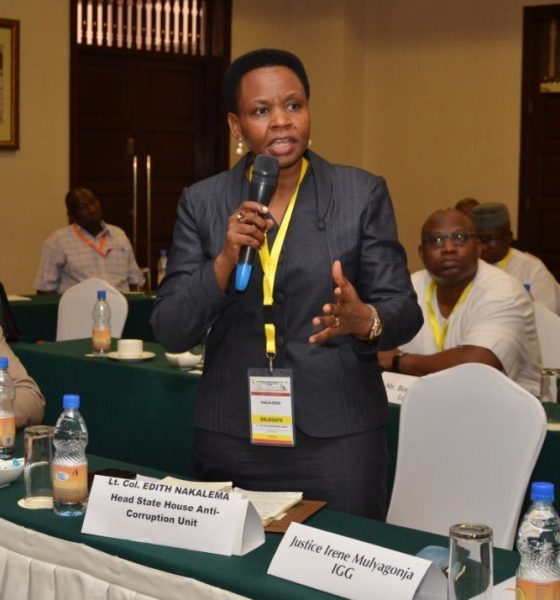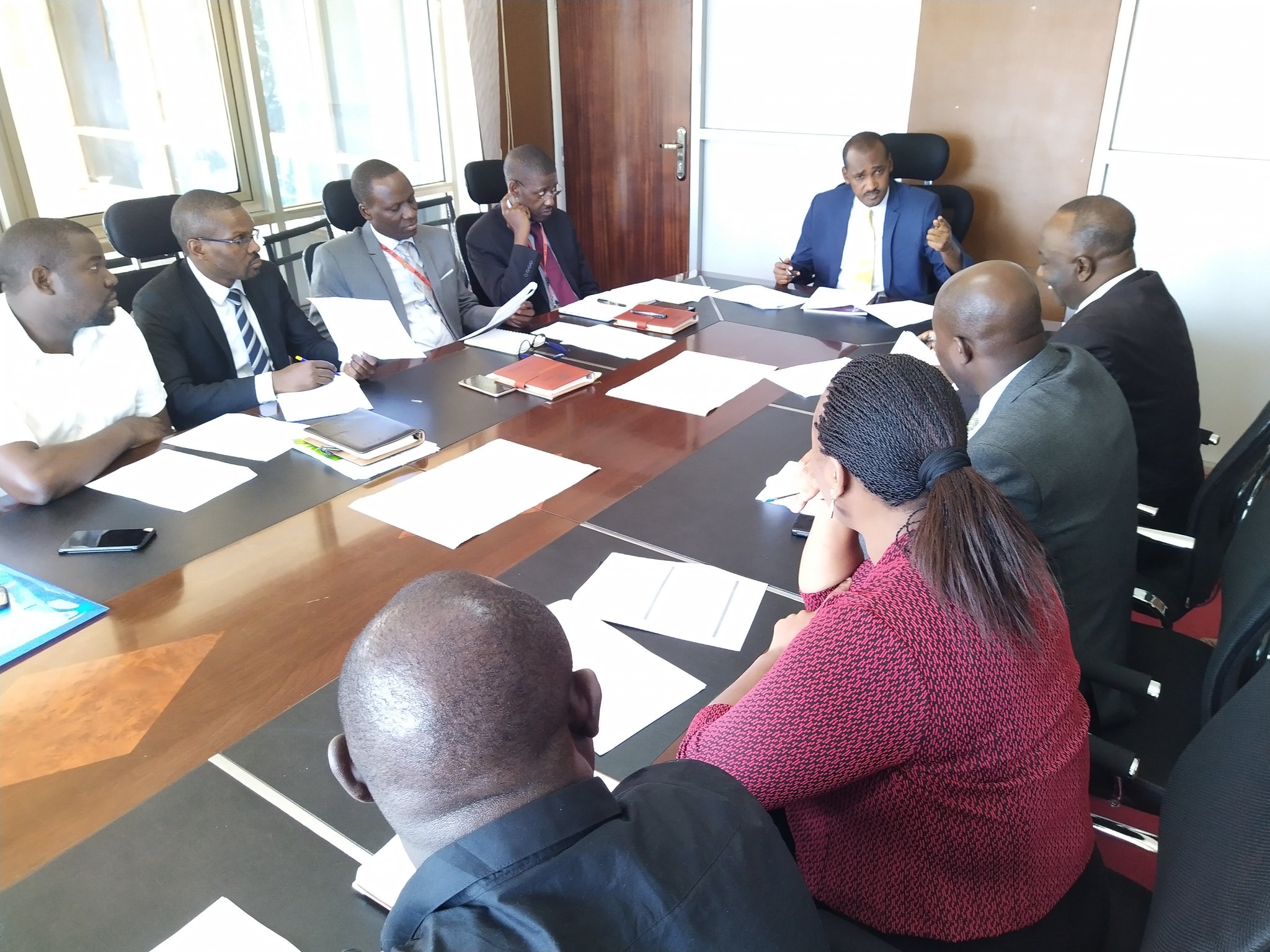
KAMPALA – State House Anti-Corruption Unit is investing top senior officers at International Police (Interpol) cited in soliciting bribes from recruitment agencies to issue their workers with Certificates of Good Conduct (CGC) and other travel documents.
The unit, which is under the Command of Lt. Colonel Edith Nakalema unearthed the massive rot at Interpol after undercover cops attached to it thoroughly investigated and confirmed the matter before making it public.
Nakalema who promised a serious swop had met Ministry of Gender, Labour and Social Development officials that included state Minister Rukutana Mwesigwa, acting Permanent Secretary, Mr Ebitu James, Director Labour, Mr Martin Wandera, and the Commissioner Employment Services.
The meeting held in Kampala was also attended by Ministry of Internal Affairs and security chiefs from the army and police where aggrieved sources reported that Interpol bosses deliberately delay travel documents to up to 6 months until one pays the bribes or gives up.
Some East African Countries including Kenya take less than two weeks to that CGC processed.
The certificate of good conduct costs UGX.64300.
The process where one required to wait for five to ten working days to have their certificates will be ready now have to wait for little with some reporting up to 6 months.
There is no express issuance of the certificate of good conduct, and there is no other place that issues.
Labour agencies reported that officials at Interpol use this monopoly to frustrate them in the form of extortion.
Labour Minister Frank Tumwebaze while appearing on NTV Uganda confirmed that he has learnt about that matter, vowing action against the perpetrators.
Tumwebaze last week met the leadership of Uganda Association of External Recruitment Agencies (UAERA) an association of the licenced labour firms, to improve the regulatory framework for externalisation of labour and to ensure the safety of Ugandan workers who suffer extortion at the hands of Interpol and other agencies who fraudulently extort bribes from them.

Labour exporters told the minister that legally registered firms are stuck with over 2000 workers whose jobs are readily available abroad but can’t travel because Interpol hasn’t cleared them.
He promised to follow up the matter in collaboration with other government agencies including State House Anti-Corruption Unit.
Tumwebaze, highlighted that a recent two-day ministerial meeting in Nairobi, Kenya, to promote harmonization of regional approaches as well as enhancing coordination of labour migration management will address some of their challenges. The interstate meeting in collaboration with the International Organization for Migration discussed a number of priorities including a coordinated strategy on the negotiation of Bilateral Labour Migration Agreements (BLMAs) with the European Union and Gulf Cooperation Countries.
The meeting also aimed at sharing information to foster safe and orderly labour mobility, and enhancing skills of Government stakeholders on the establishment of an effective mechanism of preparing migrant workers for employment abroad.
Promoting regional cooperation in combatting trafficking in persons, protecting the rights of African migrant workers abroad, strengthening regional cooperation on labour mobility and the capacity of labour migration management institutions were also discussed.
Hon. Tumwebaze revealed that East and Horn of Africa countries resolved to revise their laws to facilitate portability of social security benefits to include migrant workers, to strengthen national statistical institutions and data collection mechanisms as well as cooperation on exchange and analysis to inform policies and labour migration governance. Also discussed was the need to regulate private employment agencies.
“Members states should establish collaboration on diplomatic and consular assistance for migrants’ workers in particular countries where some states don’t have diplomatic representation, while at the same time promote and support the role of diaspora in assisting migrant workers and protecting their rights in vulnerable situations,” said Tumwebaze.
AIGP Moses Balimwoyo, the Interpol director admitted that his directorate has been infiltrated by very corrupt juniors whom he is trying to rid of.
“I arrested some of them because they were conniving with other individuals to forge the documents,” he said noting that the department, however, trying to adapt to the automation method of registering applicants seeking CGC.
“We managed to drop the old method of writing down. Because this was abetting forgeries. And cases of forgeries were many then,” Mr Balimwoyo said, adding that Interpol has since procured 8 machines to speed up the process.
He said that each machine is operated by one officer who works on 70-100 applicants a day.
“That means in a day we register over 700 people which is not a bad number,” he said.





